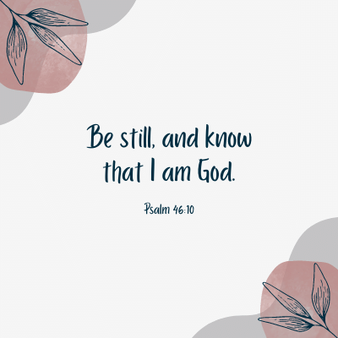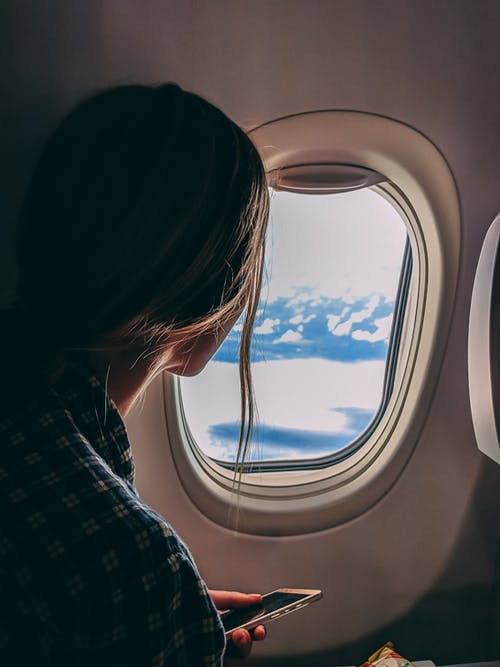 Why am I not afraid as we board this plane? It wasn’t that I wanted to feel my usual level of panic—it was just unexpected and, frankly, unexplainable. My fear of flying had started shortly after I became a mom, and over the last fifteen or so years, it seemed to get worse every time I traveled. I finally spoke to my doctor and he prescribed an anti-anxiety medicine for me to take right before I got on the plane; while it didn’t completely take away my fear, it definitely took the edge off. Now, after more than a year of being grounded because of the pandemic, I was flying to Little Rock from Chicago for work. My 15-year-old daughter, Brenna, was accompanying me, and not only was I not afraid to board the plane, I hadn’t felt anxious as we ate our Starbucks' breakfast sandwiches at the gate. I hadn’t felt nervous the night before as I drifted off to sleep, which was so unusual because normally I started worrying months in advance before a trip, panic settling in as I imagined the plane taking off and gaining altitude. Over the years I had learned some mental tricks to help manage my anxiety, such as not allowing myself to think about flying until a week before, running the numbers in my head of how many flights safely take off and land every day all over the world, and reminding myself that planes rarely crash—several things have to simultaneously go wrong for something catastrophic to happen. I was absolutely amazed at the calm I felt as we found our seats, stowed our carry-ons, and the plane took off. I actually enjoyed looking out the window as we ascended, seeing the landscape shrink beneath us. After a quick flight, we began our descent, I felt the wheels unfold and extend beneath the plane (which usually freaks me out), and then we landed. No big deal. These skies really are friendly! During the flight I thought numerous times about the mystery/miracle of not being afraid and wondered why I was not gripping the armrests and clenching my jaw--why my heart was not pounding within my chest. What was different? What had changed? It was as if a wall of peace had been erected in my mind that I couldn’t go around. Not that I wanted to—it was wonderful to be able to relax and actually enjoy my time with my daughter, traveling together to a new place. Brenna and I talked about the strange (and wonderful) phenomenon I was experiencing and she had a theory. After a year of having control over very little, including the pandemic with all its ramifications, major surgery with a potentially scary diagnosis, contracting Covid-19 with complications of asthma and pneumonia, and a significant change at my job, maybe I had built up a level of “immunity” to things that used to scare me. Brenna hypothesized that after navigating and surviving all of those difficult and scary experiences, flying was just one more thing to add to a handful of things that now seemed normal. Perhaps I was getting used to things being out of my control. A couple of days later, as we checked out of the hotel and headed to the airport, I again noticed the absence of fear as we were about to board another plane and fly home, and then this thought went through my mind. Flying the plane is not my job. Did you catch that? Because although that seems like a no-brainer observation, I don’t know that I had ever thought about it or acknowledged it. Flying the plane is not my job. It wasn’t my job to make sure we arrived safely to Chicago. That was the pilot’s job. That was the mechanical team’s job. It was the responsibility of the manufacturer and the airline and the air-traffic controllers, and whoever else plays a role in making planes and airports work the way they are supposed to. I am not even a tiny bit a part of that equation. I don’t know where all the chips fall, but I do know that I truly have nothing to do with it. None of it is my job. Ultimately, even when people fail to do their job well or evil is inflicted on innocent people, God is in control over everything. Even in moments when we are not safe with what is physically happening around us, we are safe in His care. He promises to never leave us or forsake us. He is our refuge and ever-present help in times of trouble. I can fret and worry and feel panicked in seat 18B, even though I have zero power to influence anything happening in that moment. Or, I can relax into the truth that even if something goes wrong, I am secure in God’s sovereign wisdom, love, power, and will. When it comes to anxiety, so much of mine—and maybe yours—has to do with trying to control things (and people) that are not in our control. In other words, things that are not our job. Fixing someone else’s issues. That’s not our job. Making sure our kids are happy all the time. That’s not our job. Making our spouses do what we want. Not our job. Rescuing other people from pain. Not our job. Impressing others. Not our job. Making other people like us. Not our job. Solving all Covid-related problems. Not our job. Managing our kids’ spiritual lives. Not. Our. Job. Controlling what other people think about us. I think you get it . . . You see, so much of what we worry about are things outside of our control. If I’m worried I may react in a way that is hurtful to someone else, then my job is to practice self-control. If I’m worried, however, that someone else may react in a way that is hurtful to me or someone I love, well . . . that is not something I can control. That is not my responsibility. Not my job. I don’t know how I will feel the next time I fly. And I don’t know if what I’m sharing here has the potential to help another soul who is afraid. But for me, and I think for all of us, the pathway to peace and a sense of calm even in the midst of chaos is surrender. We prayerfully—and with the help of the Holy Spirit—control what is within our power to control. Which is really only ourselves. For everything else, we practice letting go. We practice surrender. We practice it so much that we get really good at it. We learn to excel at recognizing the difference between what we can control and what we cannot. And the fruit we enjoy is peace. The writer of Psalm 46 begins with recognizing God as our refuge, strength, and ever-present help in trouble, then declares that because of this truth we will not fear, even though . . .(and then comes a list of truly catastrophic natural disasters…). We will not fear because the Lord Almighty is with us, the God of Jacob is our fortress. He rules over all. And then the Lord says, “Be still, and know that I am God.” In other words, we are not. Being God is not our job. He tells us to be still and not to fear, because He is with us. He alone is our fortress. How about you? What fears and anxieties are gripping your heart and mind today? It may be helpful to start your own list entitled “Not My Job.” Identify those burdens you are carrying that are weighing you down. Write it down. Then say it out loud in the form of a prayer. Share it with a friend. Don’t fret or worry. Instead of worrying, pray. Let petitions and praises shape your worries into prayers, letting God know your concerns. Before you know it, a sense of God’s wholeness, everything coming together for good, will come and settle you down. It’s wonderful what happens when Christ displaces worry at the center of your life. (Philippians 4:6-7, The Message) Comments are closed.
|
Sign up for updates:
Archives
January 2024
|


 RSS Feed
RSS Feed